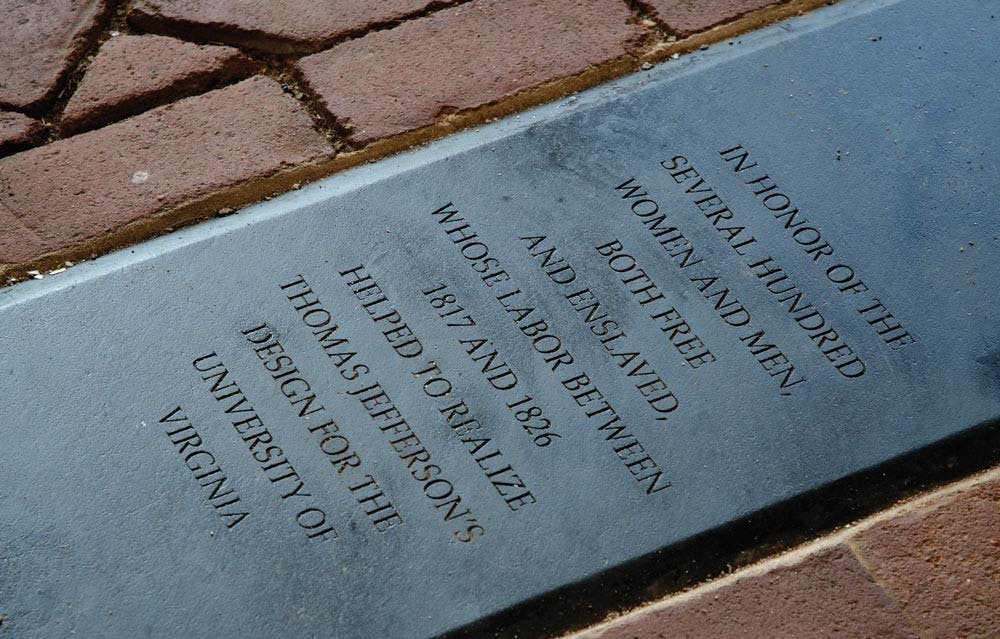An open discussion with the design team for the memorial for enslaved laborers to will be built on Grounds met with the University community Monday. The memorial will commemorate the enslaved laborers who built the University and who have remained largely hidden from the historical narrative in the surrounding area.
The memorial has the support of the President’s Commission on Slavery at the University, the student group Memorial for Enslaved Laborers and the Board of Visitors.
Audience members included professors, students and Charlottesville residents. Frank Dukes, former director of the Institute for Environmental Negotiation and founder of the University & Community Action for Racial Equity, began the discussion by introducing the members of the memorial design team and conveying his hope for the project.
“I think there’s also strong interest in something that would actually be a place where students and people can gather and offer voice to concerns that they have today,” Dukes said. “We also heard that people want this not just to speak to the past, but to speak to the future, and not just to the past of slavery but also segregation and Jim Crow.”
The design team communicated their idea of creating a memorial which would convey both the past struggle of enslaved labor on Grounds as well as reflect current concerns of African Americans in the Charlottesville community. They then opened up the floor for audience response.
“Our role is to hear from students, alumni and community members and see what they want this to be,” Dukes said. “So for me that is the big goal — that this can reflect what they are interested in having here.”
Audience members had varied responses and suggestions for the memorial, most of which questioned the complex role of slavery on campus. Cecile Forte, a motivational speaker and president of Spoken Word Productions, said she thought the conversation was positive.
“I didn’t expect it to be as honest. My point at the beginning I made [was] to say, ‘What is this supposed to symbolize?’ That was a theme that was carried throughout the conversations that we had and some of the comments were very poignant,” Forté said. “I feel very positive about what’s going to come from it.”
A few locations for the construction were discussed, including a plot of land next to the University cemetery — a cemetery for the enslaved laborers who built the University. However, the design team said they already had four potential sites in mind, one of which was a spot near Pavilion X.
One student brought up the importance of the Lawn as the most prestigious real estate on Grounds, which prompted questions as to why the memorial could not be center-stage to make a bold impact. Discussion on this topic lasted for more than 10 minutes, with another student suggesting that having the memorial near the Lawn and designing it as a space for conversation would allow the sound of student voices to reach the center of Grounds.
The design team also said the memorial could act as a center for protest.
Plans for the memorial are still in the preliminary stages. As of now, the memorial does not have an assigned budget, and the team is still working on drawing different designs, which they will later present to the University and greater Charlottesville community for feedback.
The design team has planned two more events to discuss plans for the memorial, one on Dec. 2 and the other Jan. 23. With an open, honest discussion, the team said they hope the memorial will convey a truth which has been hidden from the historical narrative.
“[The memorial] needs to interrupt the narrative that this place was only a place where there is beauty and knowledge and learning,” Dukes said. “This was also a place that slavery was very real, where enslaved workers lived their lives, doing the hard work of building the University.”






